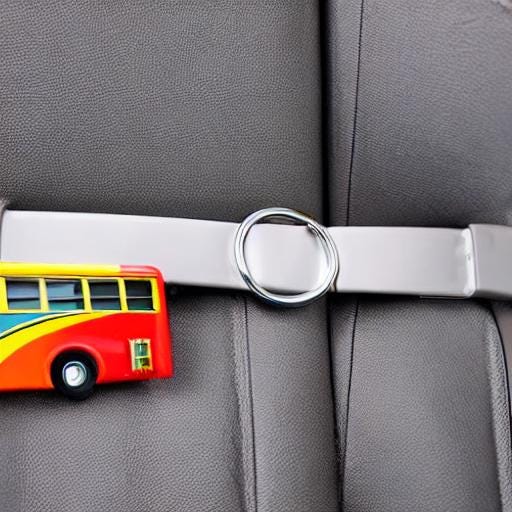You only need a seat belt once in your life
Wearing a seat belt would reduce the number of bus deaths by about 40%
The scene was unbelievable.
I was on the bus, heading from Avaré, my hometown, to São Paulo, my base city for this nomadic life. The seat belt on my seat wasn't working. When the driver came around to count the occupancy, I asked if I could change seats, explaining the problem. He said yes, no problem, and then I heard a sarcastic laugh from a young woman sitting next to me.
"Are you afraid, huh?" she said.
Still in disbelief, I replied:
"According to the National Land Transport Agency, wearing a seat belt would reduce the number of bus deaths by about 40%, but only 2% of passengers use them. The accidents involving students from Mogi, the Corinthians fans' accident, and the Taquarituba accident would have had fewer casualties if people wore seat belts. It's not fear; it's prevention. I sincerely hope people who don't use them never need it because there might be no turning back."
The impertinent intruder didn't expect such a response. She looked at the person beside her and said: "We should put on seat belts. Aren't you going to?"
She put on her seat belt, but the man did not.
This episode reminded me that one of my best friends didn't usually wear a seat belt in Uber or taxis until he saw me always putting mine on. He also said a memorable phrase. "Now I wear it. The idea of me dying and you staying alive haunts me."
A Brazilian influencer was using a Uber in São Paulo when the driver fell asleep and rear-ended a truck. With the driver wearing a seat belt, nothing much happened to him. The young man, who wasn't wearing a seat belt, was thrown far away, spent a month in the ICU, and almost died.
I take pride in a few things in life, but one of them is definitely wearing a seat belt for as long as I can remember. I hope I never need it, and probably I won't. But you only need it once in your life.
All of these scenes made me reflect deeply on travelers' safety. We often consider urban violence as a fundamental issue. We research whether neighborhoods are safe, whether it's safe to walk at night in a particular area, and we stay alert for attenzione pickpockets in tourist-heavy places.
But we underestimate other fundamental aspects. I will never understand the difficulty of wearing a seat belt for a few hours. And this is just one example.
We also ignore the onboard instructions on planes. We're dead if we ever need to land on a deserted island. If I'm an example of wearing a seat belt, in this case, I also belong to those who think it will never happen.
I'm not proud to admit that I've driven a car on the highway after getting little sleep and still hungover. Only drive on the road only after a good night's sleep. No amount of coffee can cure profound sleepiness. If needed, pull over at a rest stop and take a nap.
Social media has contributed to a new danger category: risky photos searching for likes on Instagram. Stories of tourists who died after falling off cliffs are easy to find on the internet.
Extra caution is necessary for those who travel alone, like me in many moments. My interaction experience leads me to believe that there are more good people than bad in the world. However, that doesn't prevent a thin line between meeting the love of your life or ending up without a kidney.
I won't mention that safety is much worse for women, as one day I will dedicate an article about it in this newsletter.
There would be a thousand other examples where doses of care are necessary. I'll never forget some friends who went to Machu Picchu in Peru during the rainiest (and least recommended) season and ended up wholly stranded in Aguas Calientes, à la Burning Man. It was necessary the Brazilian Air Force to rescue them and other Brazilian tourists.
I'll stop elaborating because much of it concerns something I unfortunately can't provide: prudence.
This edition, therefore, is a call to responsibility. If we adopt basic safety measures, we ensure that our way of life persists for longer.




And please, always cross the street at the crosswalk.
This is a constant argument with my husband, who thinks it's exaggerated and takes unnecessary risks to save 1 or 2 minutes of his life.
This type of situation always makes me worried, but this week even more, given the case we saw in Brazil last weekend.